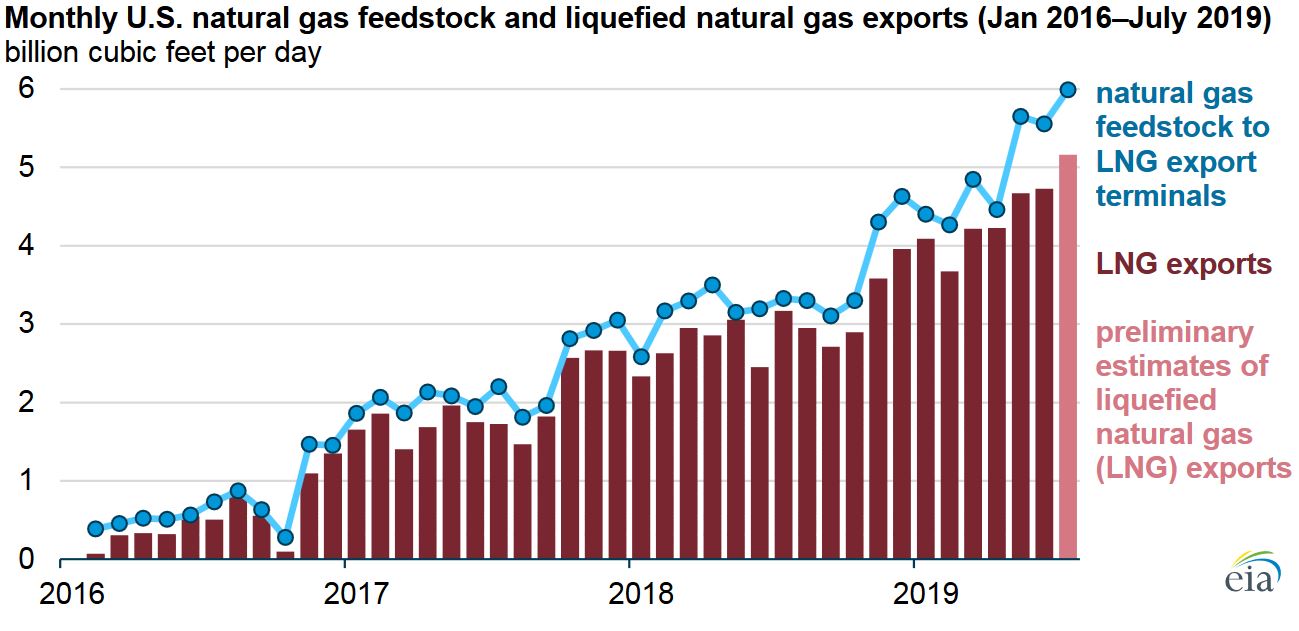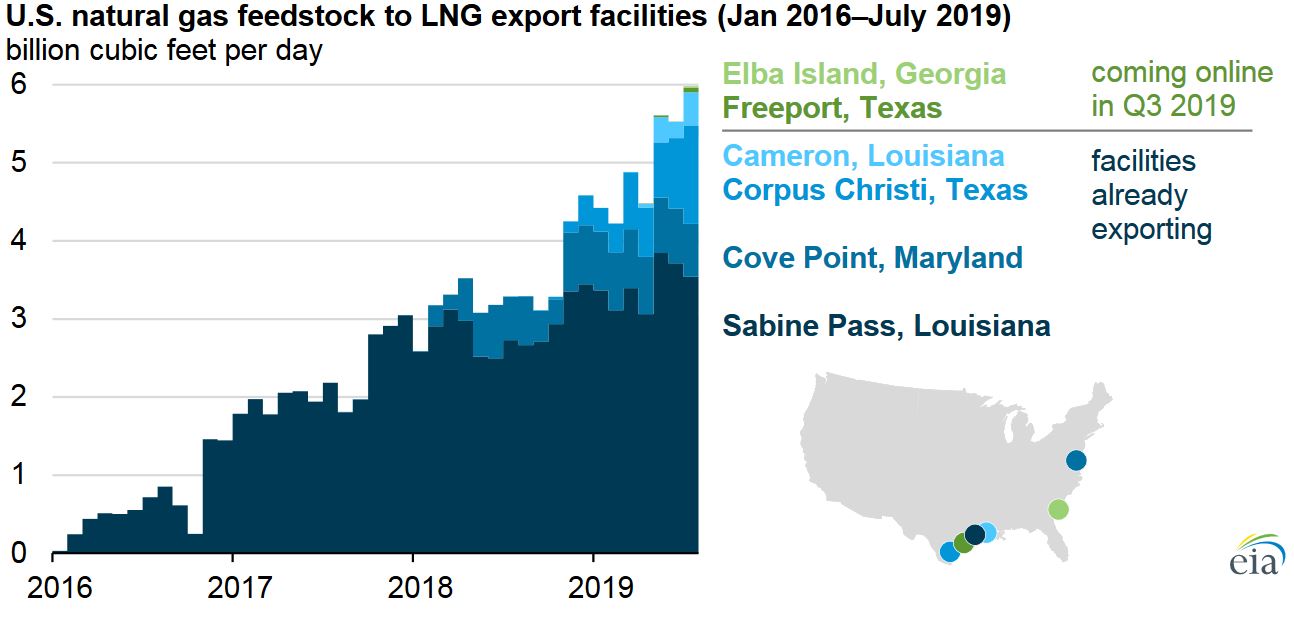Natural Gas Deliveries to U.S. LNG Export Facilities Set Records
(P&GJ) — Natural gas deliveries to U.S. LNG export facilities set a monthly record in July 2019, averaging 6 Bcf/d, or 7% of the nation's total dry natural gas production, the U.S. Energy Information Administration (EIA) reported.
The United States has been exporting more natural gas than it imports on an annual basis since 2017, and the EIA expects that U.S. natural gas exports will continue to increase as new LNG facilities come online.
In the first seven months of 2019, natural gas feedstock deliveries to LNG export facilities have been the fastest growing among all U.S. natural gas consumption sectors according to the EIA report, which cited OPIS PointLogic Energy as its data source.
Natural gas delivered by pipelines to Mexico and to U.S. LNG export facilities reached 10.9 Bcf/d in July and averaged 10.0 Bcf/d in the first seven months of this year – 30% more than in the same period of 2018.
The EIA estimates that U.S. LNG exports set new records in June and July 2019 at 4.8 Bcf/d and 5.2 Bcf/d, respectively, based on tanker loadings data from Bloomberg L.P.
Natural gas feedstock deliveries to LNG export terminals averaged 5.5 Bcf/d in June and 6.0 Bcf/d in July, implying that about 15% of the natural gas feedstock sent to LNG facilities was used as fuel in the liquefaction process.
LNG Facilities Expansion
In the first half of 2019, two new liquefaction trains came online: Cameron LNG Train 1 in Louisiana in May and Corpus Christi LNG Train 2 in Texas in June. Current total U.S. LNG export capacity stands at 5.4 Bcf/d across four facilities and nine liquefaction trains.
Two new LNG export facilities—Elba Island LNG in Georgia and Freeport LNG in Texas—plan to place their first trains in service in the next two months. Since July, both facilities have been receiving small amounts of natural gas feedstock deliveries in preparation for LNG production.
Production of LNG at Elba Island was expected to begin in May 2019, but it has been delayed in part because of unevenness in cryogenic temperatures in the moveable modular liquefaction system (MMLS) units, which are using a new technology. Kinder Morgan, the developer of Elba Island LNG, stated that 4 of the 10 MMLS units (or trains) are complete and will be placed in service in the next few months.
The first train at Freeport LNG is scheduled to come online in September 2019, and the remaining two trains arescheduled for the second and third quarters of 2020, respectively. Current plans are to complete construction and bring the remaining trains at Elba Island, Corpus Christi, and Cameron online in 2020 and 2021.
Related News
Related News

- Trump Aims to Revive 1,200-Mile Keystone XL Pipeline Despite Major Challenges
- Valero Considers All Options, Including Sale, for California Refineries Amid Regulatory Pressure
- ConocoPhillips Eyes Sale of $1 Billion Permian Assets Amid Marathon Acquisition
- ONEOK Agrees to Sell Interstate Gas Pipelines to DT Midstream for $1.2 Billion
- Energy Transfer Reaches FID on $2.7 Billion, 2.2 Bcf/d Permian Pipeline
- U.S. LNG Export Growth Faces Uncertainty as Trump’s Tariff Proposal Looms, Analysts Say
- Tullow Oil on Track to Deliver $600 Million Free Cash Flow Over Next 2 Years
- Energy Transfer Reaches FID on $2.7 Billion, 2.2 Bcf/d Permian Pipeline
- GOP Lawmakers Slam New York for Blocking $500 Million Pipeline Project
- Texas Oil Company Challenges $250 Million Insurance Collateral Demand for Pipeline, Offshore Operations






Comments